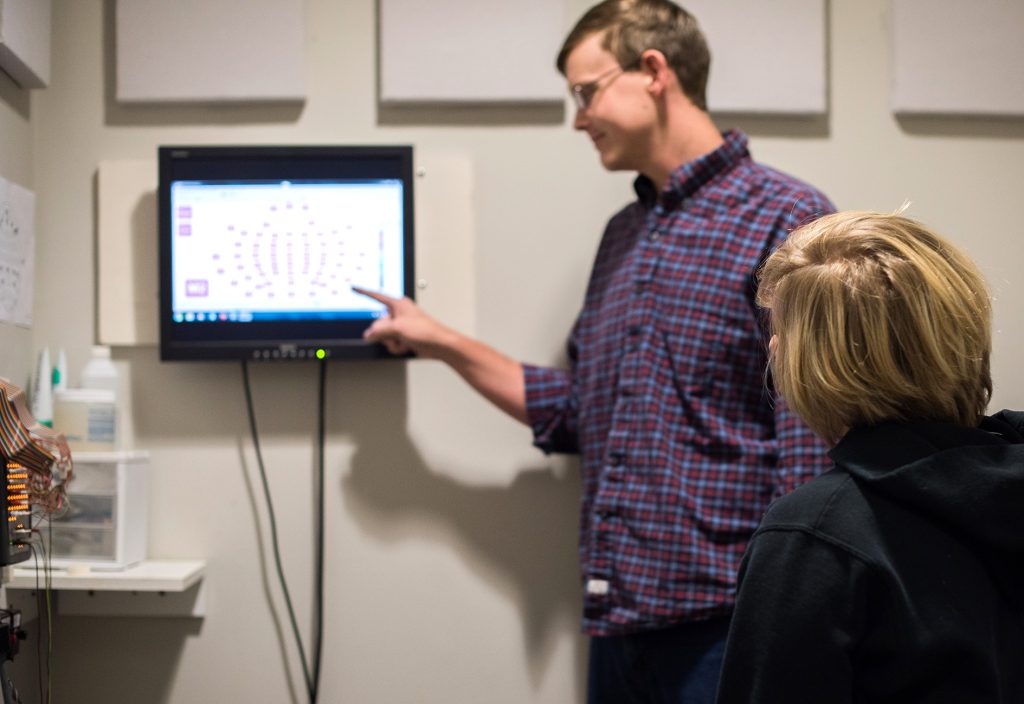 The Mentor Model
The Mentor Model
The Experimental Psychology program uses a mentor model for research training. All students are matched with a faculty research mentor upon admittance to the program based on their interests and the availability of faculty. Prospective students are encouraged to become familiar with the research areas of the faculty and to make suggestions in their applications as to which faculty they might best match. Students become involved in research with their faculty mentor as soon as they begin graduate study. In most cases, students continue with this mentor throughout their training.
Students are encouraged to build a program of research with some depth during their years in graduate school, and working consistently with one mentor assists toward this goal. However, changes can be made for a variety of reasons. In addition to working with a faculty research mentor, students are encouraged to collaborate on research with at least one other faculty member, to add breadth to their research experience.
Research Coursework
As part of the research training, students must complete Research Methods in Psychology, Advanced Statistics I, Advanced Statistics II, and either Multivariate Statistics, Structural Equations Modeling, or Psychometrics. Students are encouraged to gain as much expertise as possible in statistical methods during their time in graduate school.
First-Year Project
Each first-year student will complete a research project designed by their faculty mentor. This may be a small study or part of a larger study and usually requires the student to collect data. At the end of the year, each of the first-year students presents his/her project to the program faculty and students in a short colloquium-style presentation. Students register for 3-6 graduate research hours in connection with the first-year project.
Research Milestones
The major research milestones in the research program are the master’s thesis and the doctoral dissertation. The master’s thesis is typically proposed during the first year and completed during the second year. A committee of three faculty meets to discuss the proposal and the final project.
The dissertation is a major research project that establishes a student’s place in the research community. During the third year, students begin to design their dissertation study and meet with their committee of five faculty. During the fourth year, students prepare a complete prospectus and formally present it to their committee. The written prospectus and the oral presentation, together, constitute the preliminary examination which students must pass to be admitted into doctoral candidacy. When the dissertation research is completed, students prepare a final report and present it to their committee.
Publishing Research
In addition to coursework and milestones, students are strongly encouraged to work toward publishing their research. Having a publication record is extremely important in the job market. Students should work collaboratively with their research mentors to write and submit manuscripts for publication. In addition to the students’ primary research, it is a good idea to play secondary and minor roles in ongoing research that will be published.
Contemporary Issues Seminar
Faculty and students in the experimental psychology program meet weekly to present and discuss research. This provides an opportunity for faculty and students to learn about each other’s research and help each other solve research problems. It also provides students practice in giving research presentations. Professional issues may also be the topic of the weekly seminar (i.e., ethics in research, grant writing, finding a job), and from time to time guest speakers are invited from other departments or universities.